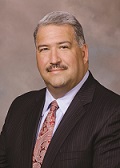
 Over the past 15 years, the global economy has become more complex and businesses and communities of all sizes have been operating in a new landscape. Advances in technology, demographic changes, evolutions in the energy market and an increase of disasters have all transformed the nation. Moreover, in the wake of the Great Recession, some industry sectors have grown, while others have contracted as the economy transitioned into uncharted areas.
Over the past 15 years, the global economy has become more complex and businesses and communities of all sizes have been operating in a new landscape. Advances in technology, demographic changes, evolutions in the energy market and an increase of disasters have all transformed the nation. Moreover, in the wake of the Great Recession, some industry sectors have grown, while others have contracted as the economy transitioned into uncharted areas.
The new landscape is marked by heightened global competition and an urgent need to increase efficiency, while also creating quality jobs. And just as business leaders around the world learned how to better balance global challenges to better serve customers and shareholders, economic development organizations (EDOs) adjusted to the evolving economic and social shifts to maintain their community’s competitive advantage.
Indeed, as the primary resource for site selectors and private-sector leaders for issues pertaining to site grant financing, business incentives and talent attraction, EDOs have been placing more emphasis on holistic strategies to provide businesses with a strong and resilient local economic base. These comprehensive economic development approaches are designed to address the core concerns of industry today, such as workforce development, sustainability and the green economy and global competitiveness.
Addressing Industry Needs
It’s no secret that having a qualified workforce is a primary consideration for corporations seeking a new location in this globally competitive economy. But balancing the supply of qualified workers with the demands of business is an intricate task. Over the past few years, technological changes in manufacturing and the service sectors have necessitated a new mix of specialized workforce skill requirements. The severity of the situation was underscored in a January 2015 International Economic Development Council (IEDC) survey, where 50 percent of EDOs responded that the lack of a skilled workforce was the top challenge to their region in 2014.
When effectively implemented, workforce development and training efforts build local capacity, support job creation and retention and help to foster innovative industry clusters. Local EDOs are taking a more active role in tackling the issue, acting as intermediaries between business and educators, serving as the critical link to developing tailored training and certification programs to supply local industries.
Furthermore, energy-related issues are increasingly among the top site selection factors for any relocation project, and investors are drawn to places with a green infrastructure and culture for relocations and expansions. The rise of mandatory reporting of energy consumption at the local level - notably in California and the City of Seattle – has spurred more energy efficiency and renewable energy initiatives to enhance economic growth.
Local EDO knowledge of demographic and market tendency is reflected in the redevelopment and revitalization processes witnessed in communities throughout the country. Green buildings, for instance, can be important for a community’s place-making strategy, and also serve to draw and retain talent. With research demonstrating that the 75 million Millennials (between 18 and 34 years of age) favor an environmentally friendly location with usable public spaces, offering an attractive place to both live and work is essential today.
Financing green initiatives will increasingly require innovative strategies and a diverse group of partners, as well as the support and buy-in of local leadership. Local EDOs help to raise investor awareness on new policies and regulations, as well as incentives for a green infrastructure.

With a GDP of over $16 trillion, and a population of over 318 million, the U.S. competitive advantages have long been the breadth and depth of its skill base, its rule of law, a pro-business environment and an advantageous energy market. In order to better meet the demands of the foreign investor, EDOs are offering incentive programs that may include cash grants and tax burden reductions, infrastructure improvement or services like employee recruiting support and training that can facilitate the implementation process for companies that are new to the U.S. market.
IEDC’s Role in Advancing Economic Development
With the need for economic development professionals to be more innovative and versatile than ever before, the International Economic Development Council (IEDC) has played a pivotal role in advancing the knowledge base and the standing of EDOs as the economy continues to transform. With 90 years of experience, IEDC is celebrating the year of the economic developer in 2016.
From public to private, rural to urban, IEDC’s 4,700 members are employed in a wide variety of settings including local, state, provincial and federal governments, public-private partnerships, chambers of commerce, universities and other institutions. The strength of the organization comes directly from the expertise and influence of its members, which ranges from real estate development, workforce development, infrastructure and business finance, marketing and attraction, international trade and tourism development.
All of IEDC’s programs and services are intended to help practitioners build vibrant communities by homing in on the key issues industries and communities face. Best-practice information is disseminated to IEDC members via professional development courses and training, networking events, myriad webinars and special learning opportunities, advisory services and though newsletters and publications. From incentives to talent attraction to the green economy to infrastructure development to workforce development to reshoring and more, IEDC provided members with the latest news and insight on these topics through short snapshots and in-depth research. Moreover, IEDC’s public policy program serves to engage its membership in policy advocacy activities.
The ED Now blog on the IEDC website features discussions on the latest trends the organization is spotting. Further, IEDC’s research reports are designed to enable practitioners to better compete in the global economy and analyze overlapping themes that correspond to today’s complex realities.
Some recent reports include “The 21st Century Incentives,” which examines how incentives can be used to support strategic initiatives in communities; “Shifting Workforce Development into High Gear: How Economic Developers Lead Workforce System Alignment,” which offers suggestions for developing workforce partnerships centered on growth industries; and “Creating the Clean Energy Economy,” which focuses on budding clean energy markets that have high job creation potential, as well as environmental benefits.
IEDC also helps members to stay abreast of relevant national happenings by collaborating with federal agencies, institutions and private-sector firms that are involved in improving economic resiliency. Forward-thinking EDOs take advantage of IEDC’s services to enhance their economic development toolboxes with cutting-edge techniques. Recently, the organization offered a training course on FDI and export development with JPMorgan Chase to arm economic development professionals with new ideas for luring investment.

Unequivocally, IEDC’s programs and services enhance the relationships between EDOs and other local stakeholders, enabling them to better work together to market a region for investment and develop a pipeline of qualified workers. And although every company’s demands are different, EDOs remain the linchpin to balancing business needs within a community, brokering successful collaboration.

